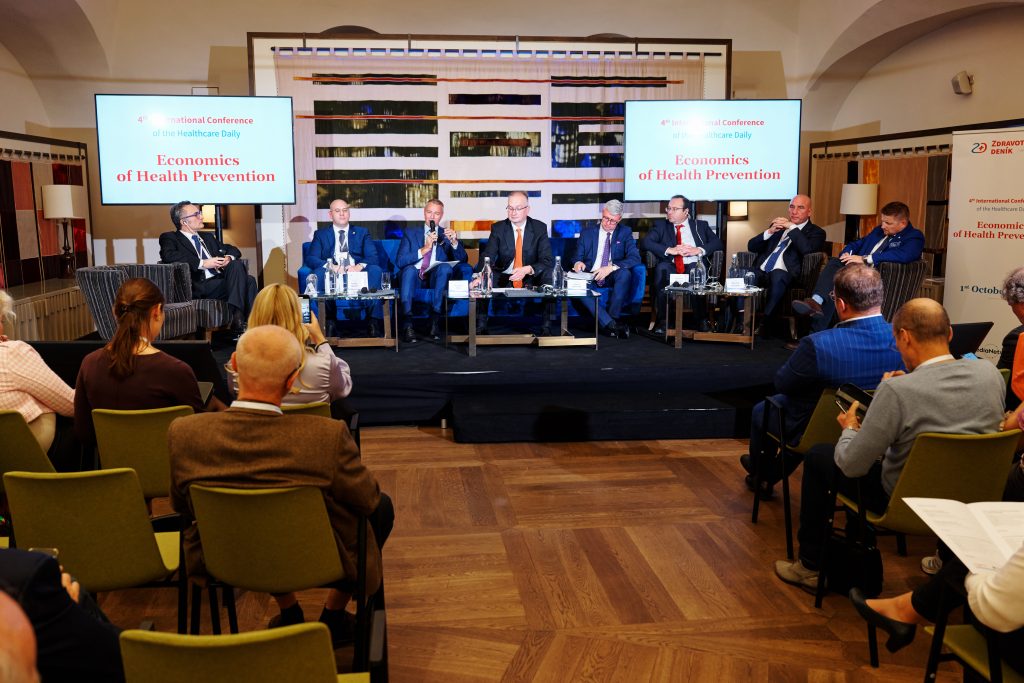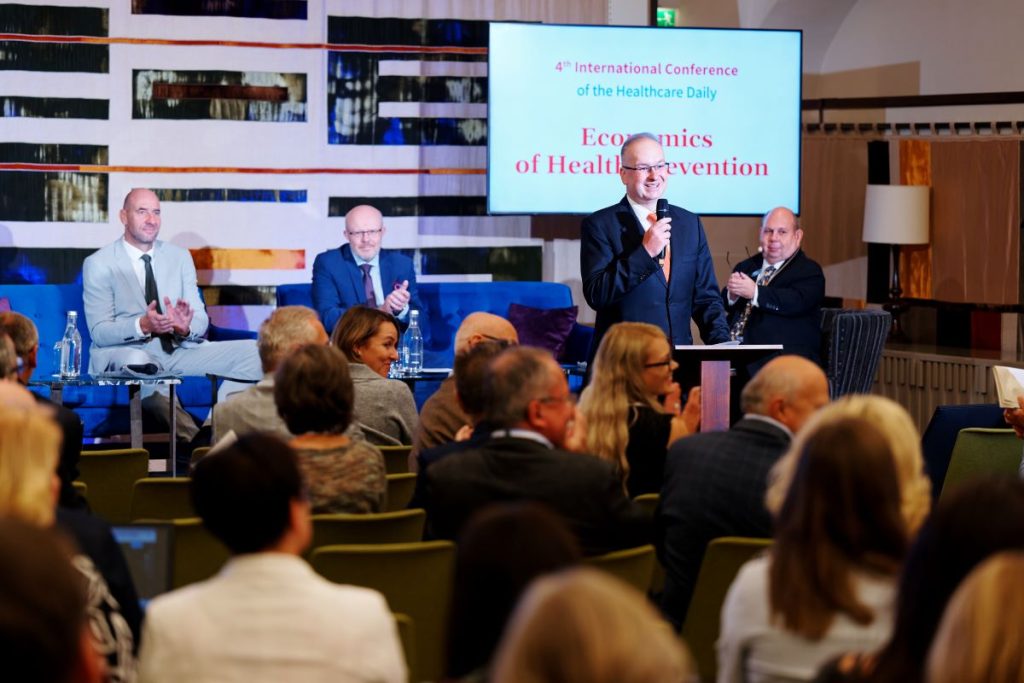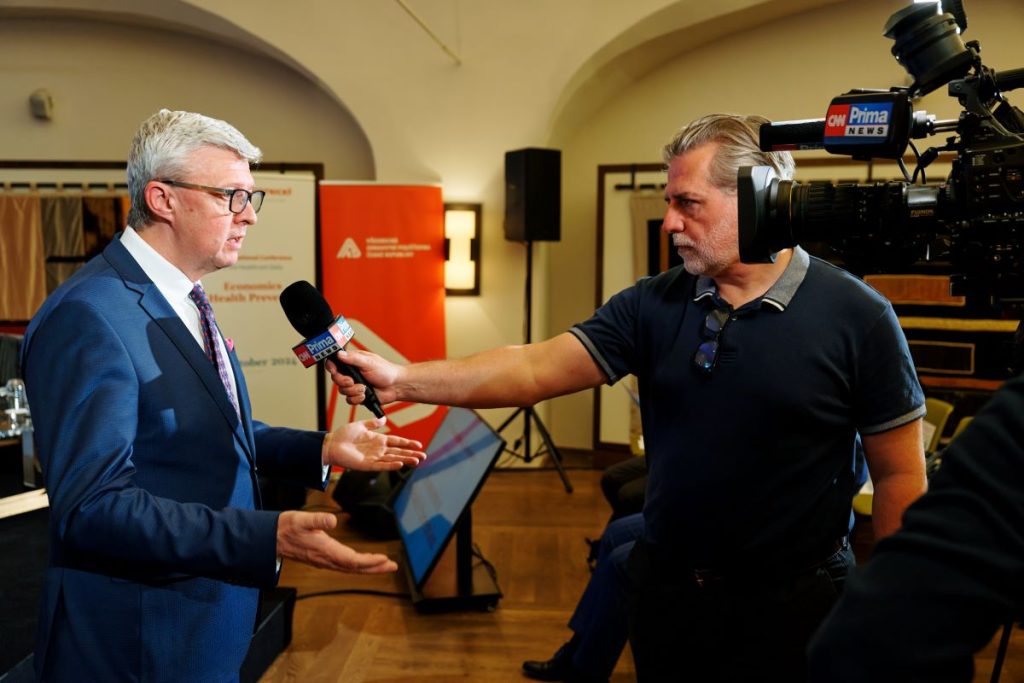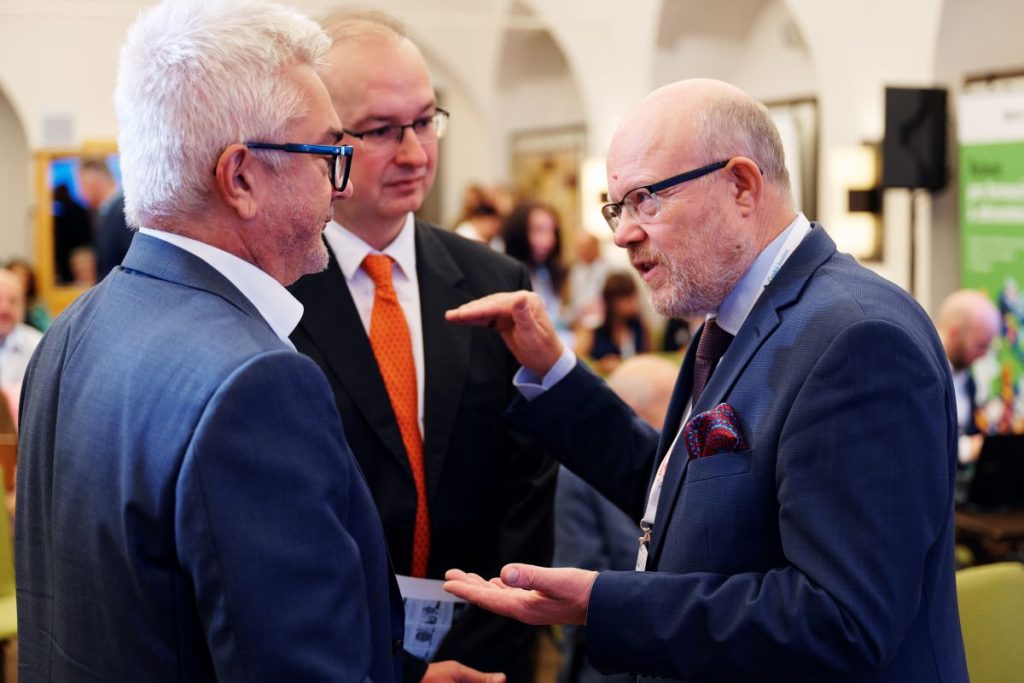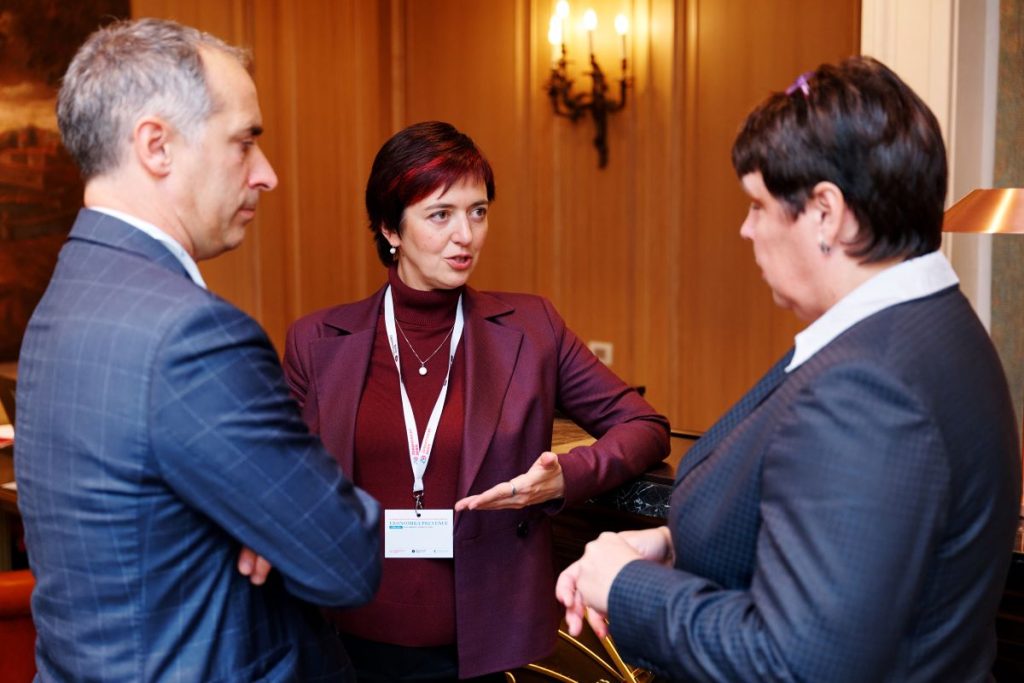Increasing the number of fully publicly funded vaccinations, as well as improving public awareness, are the best moves available to boost vaccination rates in the Czech Republic. Currently, misinformation is sapping our momentum, and we are further hindered by the fact that publicly funded vaccinations are defined by law, meaning we keep missing the boat. Vaccination, alongside risk reduction strategies, screenings, mental health, pharmacotherapy, and education, were key areas addressed by experts at the fourth annual The Economics of Prevention conference.
“Vaccination is one of the most effective preventive tools. It is all the more important at a time when we are globally addressing the problem of antibiotic resistance,” stated Barbora Macková, chief Czech public health officer and director of the Czech State Health Institute.
Yet, in utilizing one of the greatest achievements of modern medicine, we have considerable shortcomings. “From the perspective of preventing infectious diseases and vaccination, we are not a developed country. In some areas, we have very good vaccination coverage, but these are for infectious diseases where vaccination is mandatory and completely free for patients. Then there are other infectious diseases where vaccination is covered but not mandatory and involves certain costs for healthcare facilities, making it somewhat more complicated. Examples include HPV or pneumococcal vaccines. Even in this area, we are still doing relatively well. Then there are infectious diseases against which some countries have been vaccinating for decades, with vaccination included in World Health Organization recommendations, but we are unable to catch up and are losing not years but decades to the developed world. These are primarily rotavirus infections and chickenpox, which cause tens to hundreds of thousands of cases in the Czech Republic and result in many hospitalizations. For chickenpox, there are still occasional claims that patients should contract the disease, which is completely incomprehensible. How, in this day and age, can anyone say it is better to be sick than not?” wondered Daniel Dražan, a member of the Czech Vaccinological Society committee and a pediatrician.
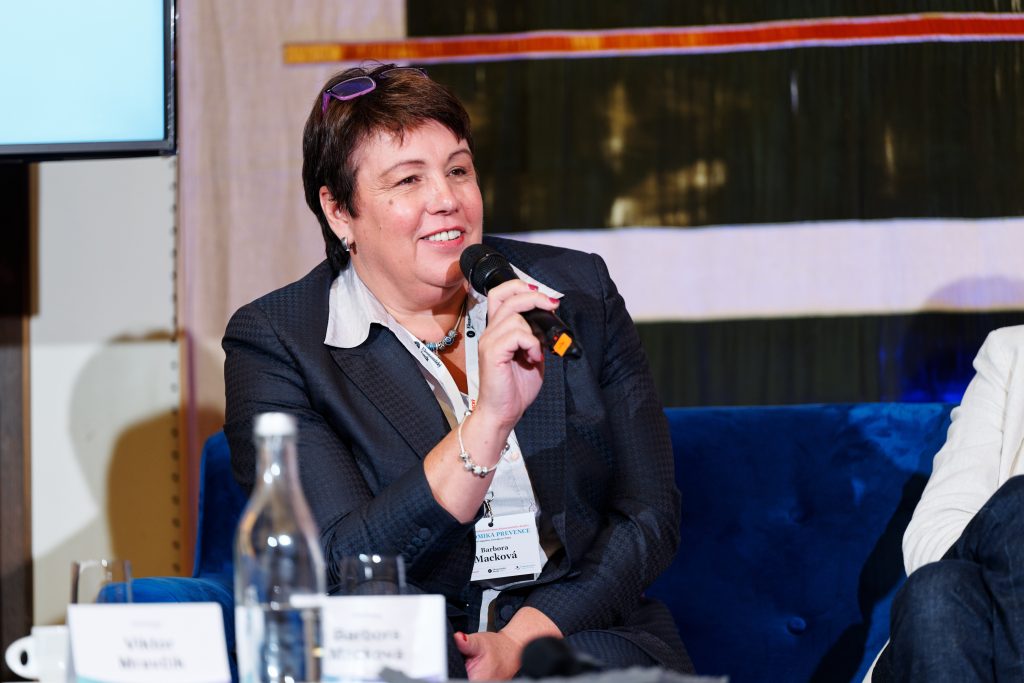
The situation was evident during the whooping cough epidemic–while in many countries adults are routinely vaccinated with the tetanus-pertussis-diphtheria combination, this country tends to stick to tetanus alone. As case numbers recently skyrocketed, demand for vaccines exceeded supply, but once the problem subsides, interest in vaccination will likely drop down again.
The Czech Republic does not vaccinate pregnant women
The situation is particularly dire for influenza, where vaccination rates have long hovered between five and eight per cent. Even among seniors and patients with certain conditions where vaccination should be routine, the rates remain at around 20 per cent. Social care facilities are doing much better, though significant gaps remain even there. By linking health and social systems, it was revealed that the flu vaccination rate in residential social service facilities is now at 55 per cent.
“This is a somewhat more positive picture than in the general population. Optimists are pleased; pessimists are not, as they would prefer 80 per cent. There is also significant variation between facility types. Nevertheless, we now have a system that allows targeting providers and focusing programs in this area,” emphasized Ladislav Dušek, director of the Institute of Health Information and Statistics, or ÚZIS.
The situation is completely dismal at the opposite end of the age spectrum. “Children in high-risk categories and pregnant women are hardly vaccinated at all. We have enormous gaps here. When it comes to pregnant women, we are serious laggards. Given the demographic situation, we should value them highly, yet we provide them with nothing in terms of infectious disease prevention–neither education nor funded vaccines to protect them and their children,” Mr Dražan lamented.
Mohlo by vás zajímat
He noted that in the UK or U.S., large campaigns promoting vaccination are common, but these are led not by pharmaceutical companies but by insurers, the National Health Service, or the state. “Here, our system of public health institutions is failing concerning both awareness and funding. We have a long road ahead and must take action,” Mr Dražan stressed.

The situation is further worsened by misinformation and hoaxes, which, though something of a chorus in any vaccination discussions, were amplified during the covid-19 pandemic. “We have given up fighting disinformation. Regarding covid-19, disinformation has won outright. Today, many people believe covid-19 doesn’t exist,” Mr Dražan said.
“We are at a disadvantage because verified, valid information that people could seek out is increasingly available but still cannot prevail over spontaneously spreading lore,” Ms Macková stated.
Experts are appealing for greater public responsibility. “This applies to vaccination too. Do websites like Mimino.cz really dictate how the Czech society should work?!” exclaimed Petr Neužil, head of the Cardiology Department at Na Homolce, an elite hospital in Prague, Czechia.

On the other hand, in this area, it is not possible to push for personal responsibility in the same way as with adult patients who, for example, continue to smoke heavily after lung surgery or abuse alcohol after liver transplants. “It would be difficult to tell parents to pay for their child’s ICU stay due to rotavirus gastroenteritis, even if the vaccine were fully funded, let alone when it isn’t funded at all,” Mr Dražan pointed out.
We keep missing the boat
The issue also has an economic dimension. “We are not investing mental energy or financial resources into this. Common sense says that if we vaccinated people against the flu, we would save billions of crowns, as the disease costs us billions–not just because people are hospitalized, though there are many, but mainly because people must stay home, parents care for sick children, and work absenteeism. Health insurers may not save money immediately, but we need a discussion on how funds can be re-allocated between sectors. If a health insurer invests money that later benefits other parts of public funds, this should be considered. Such a discussion is not happening here,” Mr Dražan stated.
The fundamental step to take would be full public funding of vaccinations for all, or at least high-risk groups. Another critical measure is awareness-building through strong public health institutions. Allowing pharmacies to administer vaccines is a partial step currently under discussion. “I don’t oppose this; it would be a good move. For some diseases, it would be complicated due to required expertise, but for flu or covid-19, it would do no harm and could help,” Mr Dražan said.
The situation is similar, if not worse, in Slovakia. There, too, public funding for vaccination is seen as key to higher rates. “We would like to move a large portion of vaccines into public health insurance coverage, as this would make them more accessible,” said Ladislav Slobodník, secretary of the Slovak Ministry of Health.
Of course, not all vaccines can be immediately funded for everyone–there are financially demanding new options like the shingles or RSV vaccines–but at the very least, people should be informed about vaccination options.

“Here, we can’t push for full public insurance coverage tomorrow. On the other hand, in the UK or U.S., once a regulatory authority approves a vaccine, a recommending authority discusses it within weeks. They weigh financial aspects, but the vaccine is practically immediately included in the vaccination program. In this country, it takes decades,” Mr Dražan added.
If the Czech Republic wants to keep up, the system of legally defined funded vaccinations should be revised. “There are efforts to change the relevant legislation, but every year we miss the boat by more,” Mr Dražan noted.
Real-time vaccination oversight
Not to be too indiscriminately critical: vaccination has seen some changes and progress. Everyone should now be able to keep track of their vaccination thanks to the EZkarta system, which records vaccinations in real time, and adds data going back to 2010, retroactively. The central vaccination registry was launched last year, with vaccinating doctors entering negligible amounts of data into their systems. The data is then automatically transferred to the central registry and shared via Ezkarta, or shared health records. This data also enables targeted efforts, as Professor Ladislav Dušek noted, to address the weakest points.
Because this is an indicator we can measure and which has a clear positive impact on public health with potential future savings, it could–at least in the Slovak healthcare system, which differs somewhat from the Czech system (the Ministry of Finance plays a larger role in fund allocation)–serve as a metric tied to increased healthcare funding.

“The Ministry of Health could receive a set of indicators from the Ministry of Finance each year, with the promise of an additional half-billion euros the following year if they are met. When health insurers receive such an offer, they will push providers to turn incentives into reality. This could also extend to patients. Such KPIs (key performance indicators) could include HPV vaccination coverage in 12-year-olds or flu and pneumococcal vaccination rates in seniors. The entire sector would be motivated to achieve defined results,” proposed Tomáš Szalay of the Slovak National Council’s health committee.
Introducing patient bonuses for taking care of their health–such as getting vaccinated–could be a helpful tool in the Czech system. Sharing vaccination rates data among general practitioners (as Belgium does) could be yet another piece of the puzzle. “Simply sharing data–seeing that a doctor in a neighboring town has 80-per-cent coverage while I have 60 per cent–leads to better care for one’s patient base. It doesn’t require heavy intervention or financial penalties,” outlined Ivan Duškov, deputy director of the General Health Insurance Company (VZP) for client services.
Because each region may have specific needs, Tomáš Szalay stressed the importance of seeking local solutions alongside broad ones. Doctors in remote regions with high vaccination rates should be asked how they succeeded, and their colleagues could adopt similar approaches.
Thanks and acknowledgments for supporting the conference go to the General Health Insurance Company, Ministry of Interior Health Insurance (Czech Republic), Slovak General Health Insurance, and Tiscali Media, ALK, Ewing, EUC, AKESO, Sprinx, the National Sports Agency, and the Dukla Sports Club.
